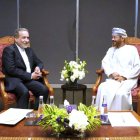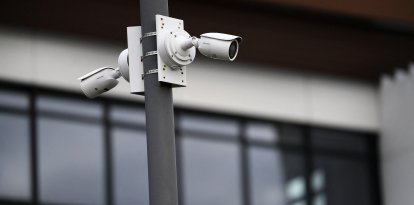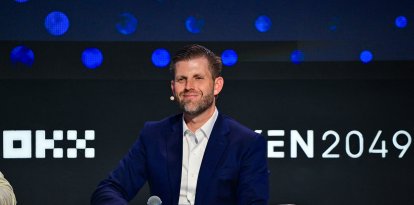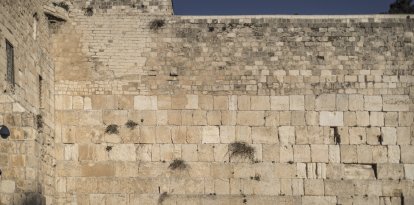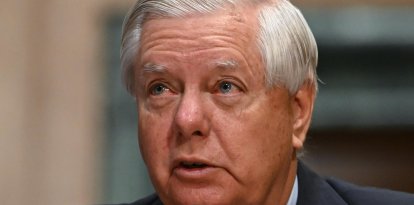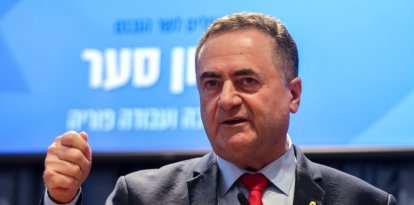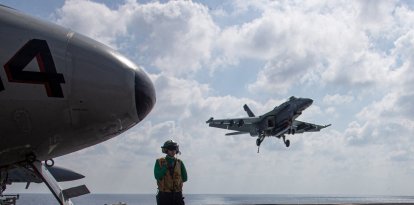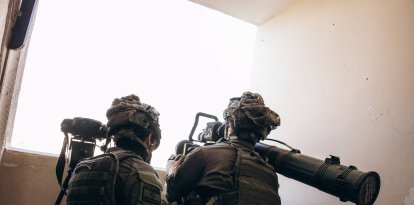US envoy: Iran talks to prioritize enrichment limits, oversight
Steve Witkoff says uranium enrichment up to 3.67% may be permitted; Israeli officials oppose any Iranian nuclear activity.

US Middle East envoy Steve Witkoff
The renewed nuclear negotiations with Iran will concentrate on capping uranium enrichment and enforcing stringent verification measures to block Tehran’s path to nuclear weapons, U.S. Special Envoy to the Middle East Steve Witkoff said on Monday.
“The president’s message of peace through strength … resonates throughout the world,” Witkoff told Fox News. “They [the Iranians] cannot have a bomb. … The conversation with the Iranians will be much about two critical points: enrichment, … and ultimately verification on weaponization.”
Witkoff indicated that the administration may accept Iranian uranium enrichment up to 3.67%—the limit set by the 2015 Joint Comprehensive Plan of Action (JCPOA)—but made clear that higher levels are unacceptable. “You do not need to run a civil nuclear program where you are enriching past 3.67%,” he said, referencing Iran’s recent enrichment to 20% and even 60%.
The Trump administration’s approach appears to be focused on revising and strengthening the JCPOA framework without fully dismantling Iran’s nuclear infrastructure—an approach that has sparked criticism in Israel and among some U.S. lawmakers.
Jerusalem opposes any Iranian nuclear activity, viewing even limited enrichment as a direct threat to regional stability.
“Iran has made no secret of its intent to destroy the State of Israel. These are not my words—they are saying it themselves, clearly, directly and without shame. And they are saying similar things about the United States,” Gila Gamliel, Israeli minister of innovation, science and technology, and a member of the Security Cabinet, told JNS on Tuesday.
“The shift we’ve seen came only because Iran’s supreme leader recognized that the United States, under President Trump’s leadership, was prepared to use force. The Iranian regime is skilled at negotiating, stalling and using time to its advantage,” she said.
“Israel, like the United States, values peace, prosperity and democracy. We are united in our opposition to terrorism and its financing, and we share common values. That’s why we support any agreement that ensures Iran has fully dismantled its nuclear program—modeled after Libya’s disarmament—ceases its support for terrorism, and completely dismantles its missile program,” added Gamliel.
“I am confident that the president of the United States, as the leader of the free world, will accept nothing less,” she said.
Notably absent from Witkoff’s remarks was any mention of the Islamic Republic’s global support for terrorist proxies—a longstanding point of emphasis for Israeli leaders and officials from the previous U.S. administration.
The envoy’s comments come amid a fresh round of indirect nuclear talks between the United States and Iran. A meeting took place Saturday in Oman, with another reportedly scheduled for this coming weekend, also in Oman, according to the Associated Press. Earlier reports had suggested Rome as a potential venue.
“President Trump is trying to exhaust all options before going to the military option,” Likud MK Avichay Buaron told JNS. “The American negotiators must be aware of the smart and sophisticated Iranians who will employ every manipulation in order to retain their nuclear abilities,” he continued.
“Israel’s red lines are very simple. Iran must give up all nuclear capabilities, including so-called nuclear capabilities for civilian purposes, and do so in a few months under the supervision of the U.S. Only this will ensure that Israel will stay safe and secure after the Trump administration[’s term is over],” Buaron said.
Trump slams pace of talks, warns strike still ‘on the table’
Speaking from the Oval Office on Monday, U.S. President Donald Trump criticized the pace of the negotiations and warned that military action remains an option if diplomacy fails.
“We had a meeting with them on Saturday, we have another meeting scheduled next Saturday. I said, ‘That’s a long time,’” Trump said during remarks alongside El Salvador’s President Nayib Bukele.
“Iran has to get rid of the concept of having a nuclear weapon. They’re fairly close to having one. … If we have to do something very harsh, we’ll do it. Of course [a strike on Iranian nuclear facilities] is on the table,” the American leader continued.
Trump, who withdrew the United States from the JCPOA in 2018, emphasized that any future policy must ensure Tehran is permanently blocked from acquiring nuclear weapons.
“I’m not doing it for us, I’m doing it for the world,” he added, labeling the Iranian regime “radicalized.”
“President Trump’s approach and statement that Iran will never get nuclear weapons is most important,” Likud lawmaker Ariel Kallner told JNS. “If he can achieve it through negotiations, I am not against it, but we should be very careful with Iran because their goal is to get nuclear weapons in order to destroy Israel and conquer the whole world.
“If President Trump can do it through negotiations, great, but the talks need to be limited in time,” he added.
The current diplomatic push represents the most senior-level engagement between Washington and Tehran since Trump appointed Witkoff as special envoy on Jan. 20, the day the president was inaugurated.
Administration officials say they are seeking a deal that improves oversight while maintaining some elements of Iran’s existing nuclear program—a compromise that continues to face strong opposition from Jerusalem and key members of Congress.
“We need to make sure that in this agreement, we impose restrictions on them so that even if they want to return to developing nuclear weapons in the future, it will take them time and the world will know about it again and take notice,” Likud Knesset member Moshe Passal told JNS.
“If Iran decides to go after nuclear weapons, the goal should be to achieve the collapse of the Iranian regime, which is no less important than attacking the nuclear facilities themselves,” he said.
© JNS






